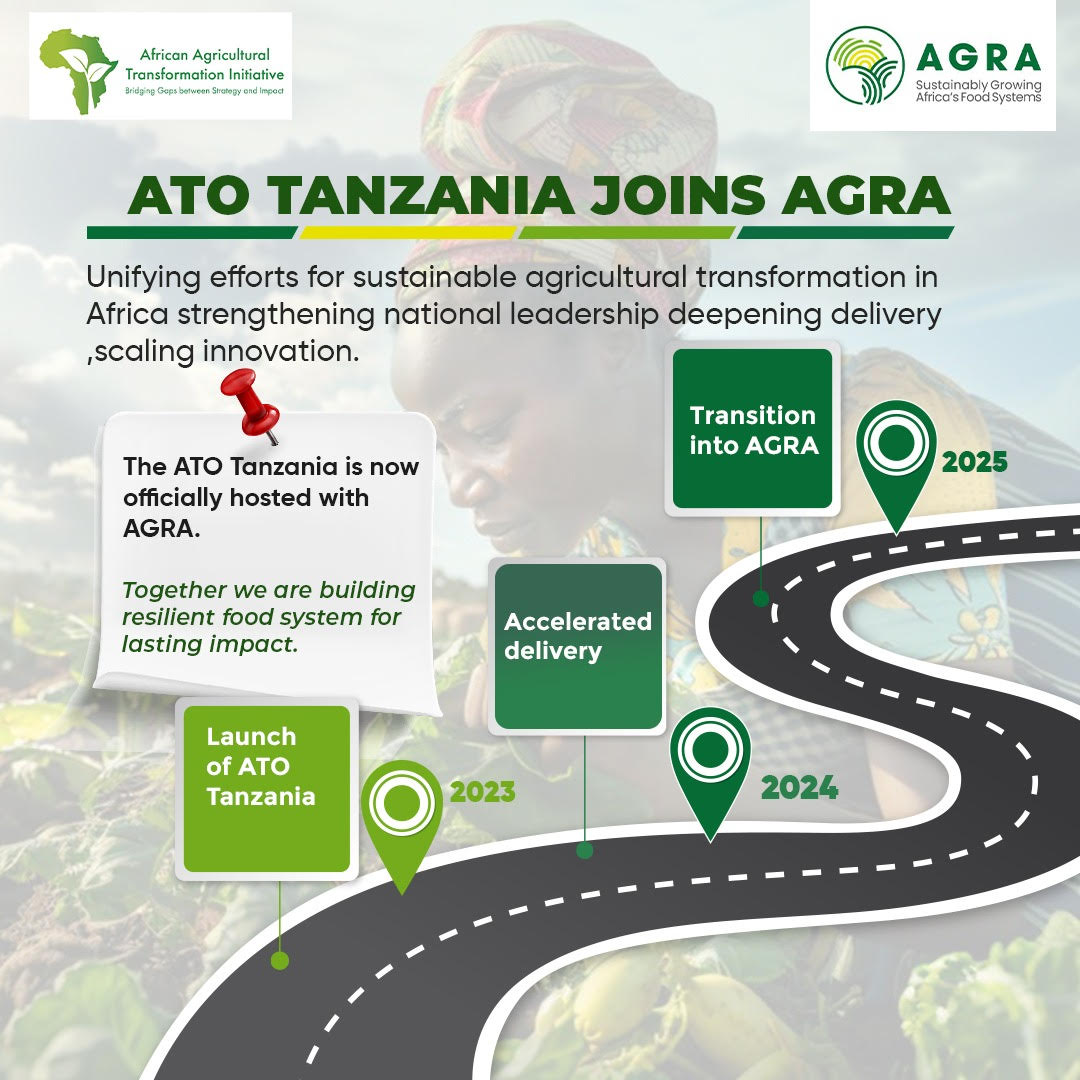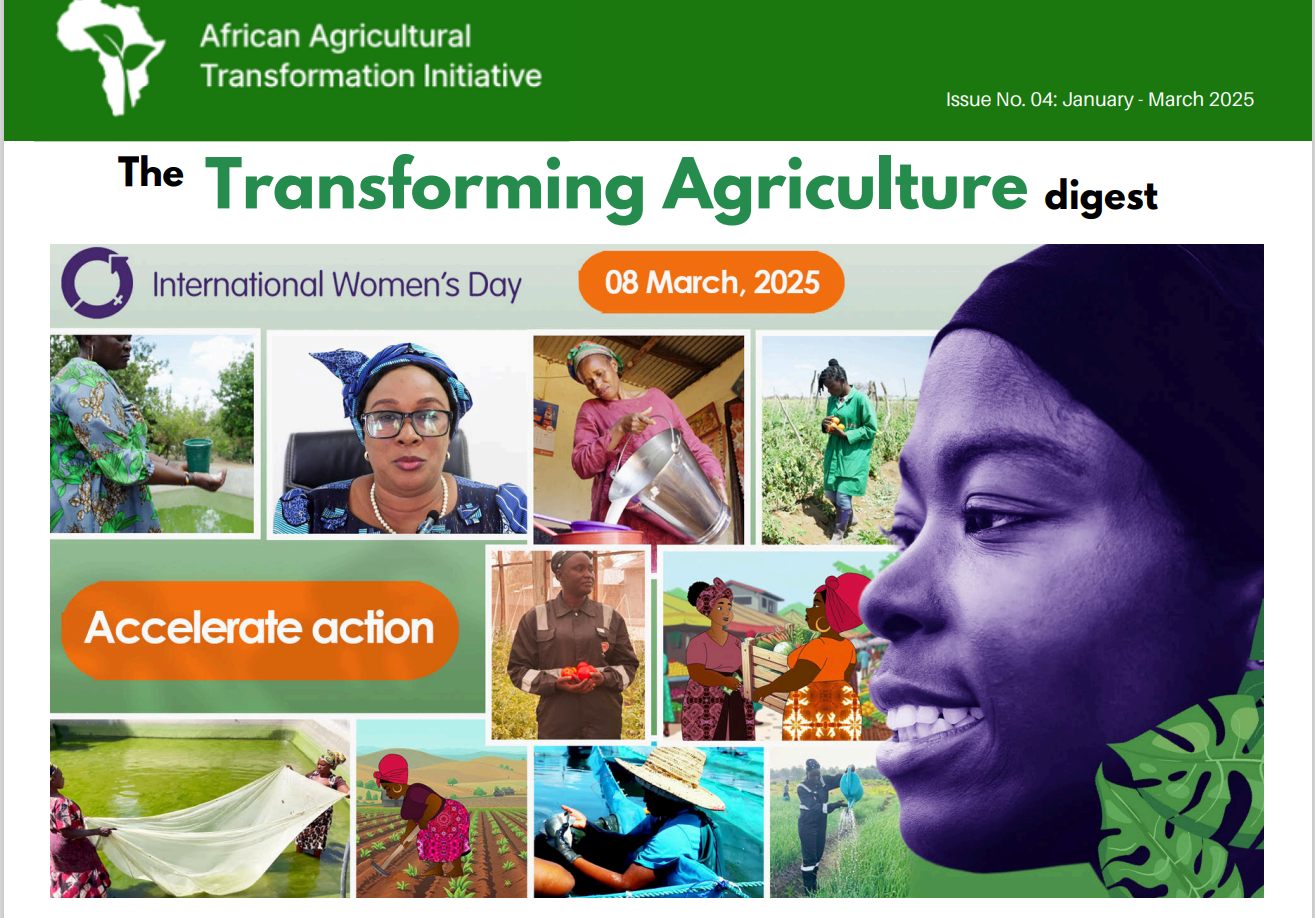AATI, uniquely positioned for impact

The Challenge
The African continent is best placed for agricultural growth with over 10 million sq. km of arable land, a diverse ecosystem and a wealth of mineral resources. Despite its resources and potential, the continent remains a concern for food security, agricultural growth, adaptation to climate change and sustainable economic development. The continents challenges stem from three main factors.
First, the global human population reached 8.0 billion in 2022 and is expected to increase by nearly 2 billion persons in the next 30 years. Much of this growth is set to take place in Africa. With a growing population, food systems are stretched. The situation has been exacerbated by ongoing conflicts, the COVID-19 pandemic and climate change, which have affected supply chains, food security and nutrition.
Second, it is estimated that there are 500 million smallholder farming households who produce about 80 per cent of the food consumed in Asia and sub-Saharan Africa. Though these farmers play a substantial role in establishing food systems, they still make up a significant portion of the world’s poor, thus threatening the realisation of the Sustainable Development Goals. Furthermore, while land ownership is critical for income generation, accessing credit, and transferring wealth to younger generations gaping inequalities exist.
Third, despite the fact that many African governments have developed agricultural strategies, the success of any strategy in achieving its objectives depends on the structures that exist to facilitate its implementation. Substantial resources, technical expertise and collaboration among stakeholders are crucial for success. Multi-lateral coordination of strategy implementation remains complex.
Setting the stage for AATI
The need for sustainable and resilient food systems has never been stronger. Small holder farmers must be included in decision-making, national plans should scale-up support to small holder farmers, and women and youth have to be included in the allocation of resources and support.
Governments need to collaborate with stakeholders to bridge the gap between developing efficient and effective agricultural strategies and ensuring their implementation for impact to small holder farmers. This would provide an enabling environment for the farmer to move from subsistence to entrepreneurship with the creation of jobs and wealth.
The solution
The launch of the African Agricultural Transformation Initiative (AATI) in July, 2022, presents a unique opportunity to offer solutions to the challenges experienced in the agricultural sector. Over five years (2021-2026), the AATI will seek to establish new (and strengthen existing) national mechanisms designed to enhance delivery of agricultural transformation policies and programmes.
AATI has identified several priority countries for its initial engagements where it is launching a programme to enhance the effective and sustainable acceleration of agricultural and food system transformations. The initial engagements create the opportunity to roll out learnings and extend support to other African countries.
AATI support to specific countries is a combination of three areas based on needs; visioning and strategy operationalization, institutional support and flagship implementation and delivery. As we drive for impact, our values show where our heart lies. We put smallholder farmer interest at the centre of our work, advocate for gender and generation inclusivity, build capacity at national level through developing and/or supporting National agricultural delivery units, and encourage knowledge sharing through collaborations.
I am grateful to our founding partners (IFAD, Bill & Melinda Gates Foundation, McKinsey & Company, and AGRA) who made this initiative possible, and look forward to partnering with other stakeholders to alleviate poverty, promote food security and strengthen climate resilience in the continent.
Safia Boly
Executive Director, AATI


